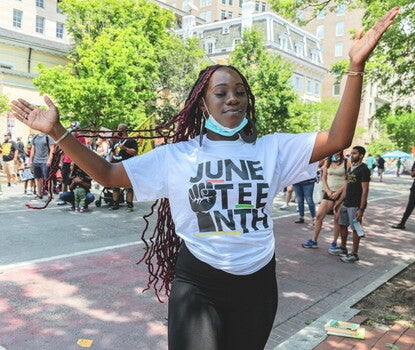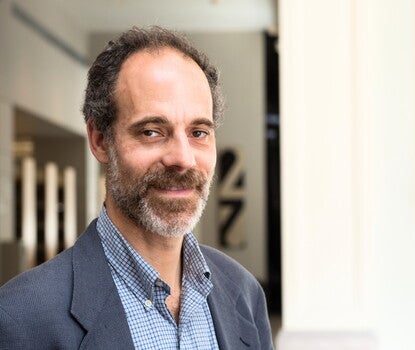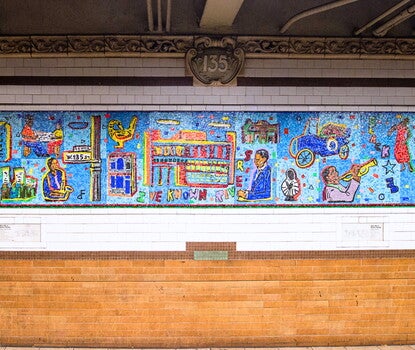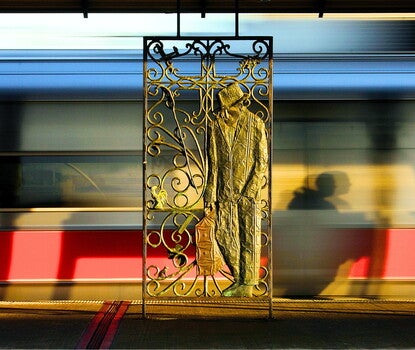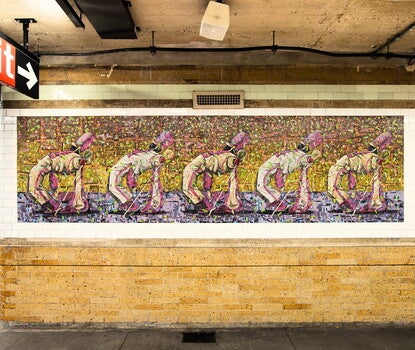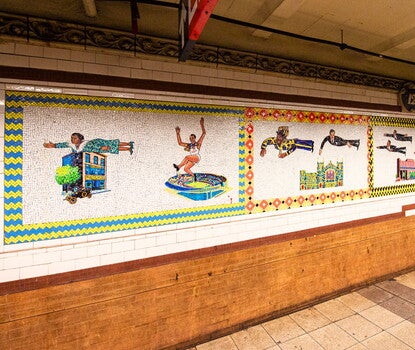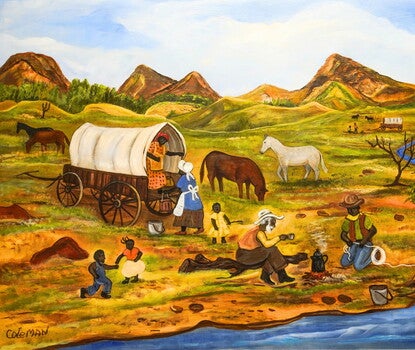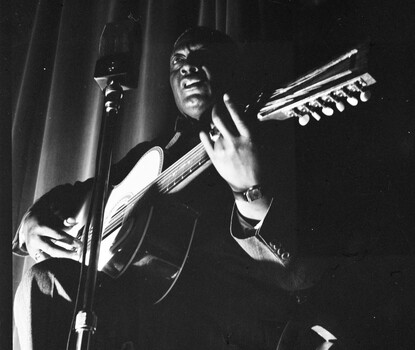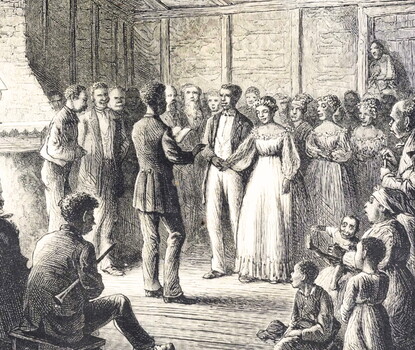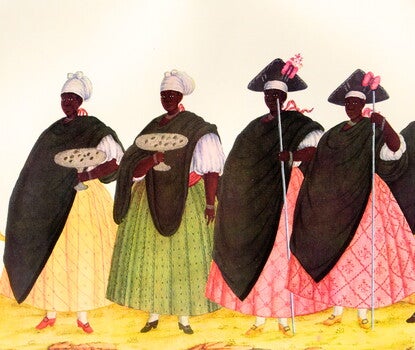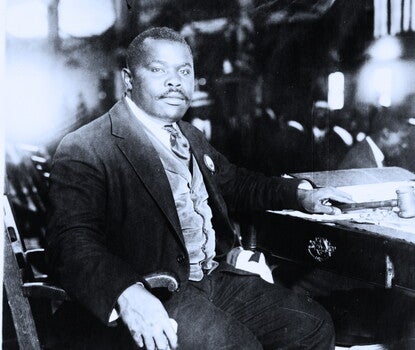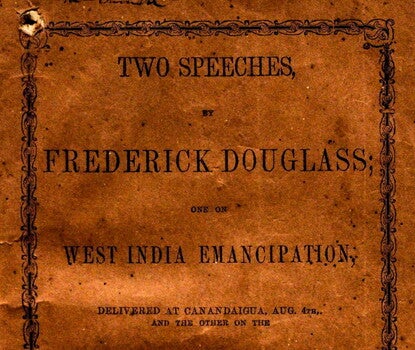An Introduction to Juneteenth
by Graham Hodges
Explore the history and commemoration of Juneteenth.
The Odyssey of Phillis Wheatley
with David Waldstreicher
Explore the life of this Black, female poet who published a book of poems while enslaved, and learn about the reactions to her work at the time.
“Harlem Timeline”
by Willie Birch
Explore the history of Harlem through this work of art in the New York City subway system.
“Hear the Lone Whistle Moan” / “copacetic”
by Alison Saar
View two pieces paying homage to the Harlem Renaissance.
“PARADE”
by Derek Fordjour
View an homage to historic parades through Harlem in this mosaic created in the New York City subway system.
“Flying Home: Harlem Heroes and Heroines”
by Faith Ringgold
View a fantastical homage to Harlem history through this work of art in the New York City subway.
“Camping Time”
by John Coleman
View a depiction of Black migration during Reconstruction.
Blues in the 1930s and 1940s
by David Evans
Explore the evolution of the blues in this era.
Dressing Freedom: The Wedding Clothing of Freed People
by Brenda E. Stevenson
Explore the importance of wedding clothing for freed people during Reconstruction.
“Festival of Our Lady of the Rosary, Rio de Janeiro, Brazil”
ca. 1770s
View this print of a festival led by enslaved people in Brazil.
Marcus Garvey at His Desk
1924
View this photograph of Marcus Garvey, the founder and leader of the Universal Negro Improvement Association.
“West India Emancipation”
1857
Read Frederick Douglass’s first use of the phrase “If there is no struggle there is no progress.”
Showing results 1 - 12
